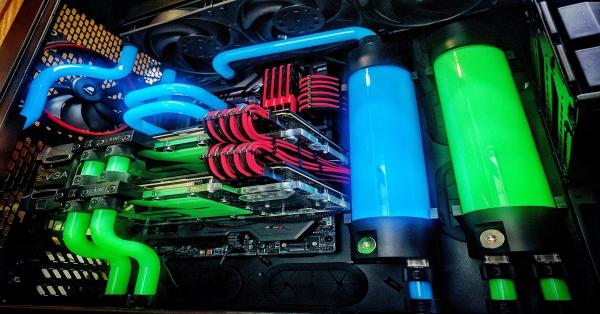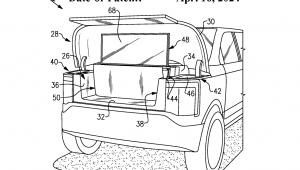Toys of the Next Generation of A/V Engineers

It is thus in our collective interest to work hard to educate our youth. Sometimes we worry that the next generation cannot possibly catch up to, let alone, exceed, our own accomplishments. In the context of audio/video technology, each generation wonders where the next generation will come from.
Many old-school AV engineers were GIs who were trained in electronics during WWII; then after the war, they built the emerging consumer-electronics market. They mentored the next generation of engineers who transitioned us into solid state. (I suspect that many of that generation found old vacuum-tube radios in their parents' attic, and that inspired a generational nostalgic fondness for vacuum tubes). This was a generation of soldering irons and resistor color codes. They built Heathkits, and anyone who managed to build a Heathkit color television earned eternal respect from their peers.
Fast forward to today. On the hardware side there is a wonderful breeding ground for AV engineers. Theirs is the world of DIY gaming computers – CPUs, GPUs, clock speed, frames per second, thermal throttling, air-cooled or liquid cooled, and Red Team (AMD) or Blue Team (Intel). Their creations are “toys” only in the sense that the Saturn V was a toy for NASA. That's because the computers they create are technological beasts.
Let me be clear. The computer I am typing on is not in their league. Every 30 minutes, I have to open a tiny hatch and drop in a thimbleful of coal, to maintain a good head of steam. In comparison, their computers are navigating the Starship Enterprise through wormholes. The aim is to build computers that excel at gaming, and produce the very best gaming experience. The level of detail and optimization required to achieve that is extraordinary.
Gaming is the goal, but while anyone can buy a gaming computer and play games, these DIYers build their own computers. In many ways, they are more interested in the technology than in the game itself. It's almost like someone who endlessly tinkers with and upgrades their home theater system rather than merely watching movies on it....
But what do DIY computers have to do with audio and video? Well, almost everything. The future of audio/video, of course, is entirely computer-based. Kids who know the difference between an AM4 and LGA 1200 socket will feel entirely at home in a job interview with any AV firm. And the DIY computers they are building are AV powerhouses in their own right, with nominal 7.1 HD audio and 4k video. With the constant evolution of technology, theirs is an endless pursuit of the next best thing.
Which brings us back to the question of mortality. As technology becomes more sophisticated, it also becomes more difficult for kids to enter the field. Once upon a time, a kid could take apart a telephone and learn how it worked. Today, not so much. The complexity of technology could limit the entry paths of the next generation, which ultimately could limit the progress of technology.
Let's suppose that your son or daughter has expressed interest in computers, video gaming, or electronics in general. You might, using your best parental subtlety, suggest that you team up to build your own fast gaming computer, or maybe a home theater PC with massive storage. After that look of astonishment, you might find a willing partner.
Start by doing research. Trust me – there is a lot to learn, and many mistakes to avoid. Of course, the internet is your friend. There is a plethora of YouTube videos (like Linus Tech Tips and Paul's Hardware). Compatibility of components must be carefully planned and web pages (like pcpartpicker ) can help with that. Retailers (like Newegg) sell all the parts you'll need; however, the pandemic has royally messed up the supply lines and some components are hard to find right now.
Of course, if any of this has piqued your interest, you could build a new PC for yourself. Just make sure it kicks ass. Like they say, the bigger the boys, the bigger the toys.






























































